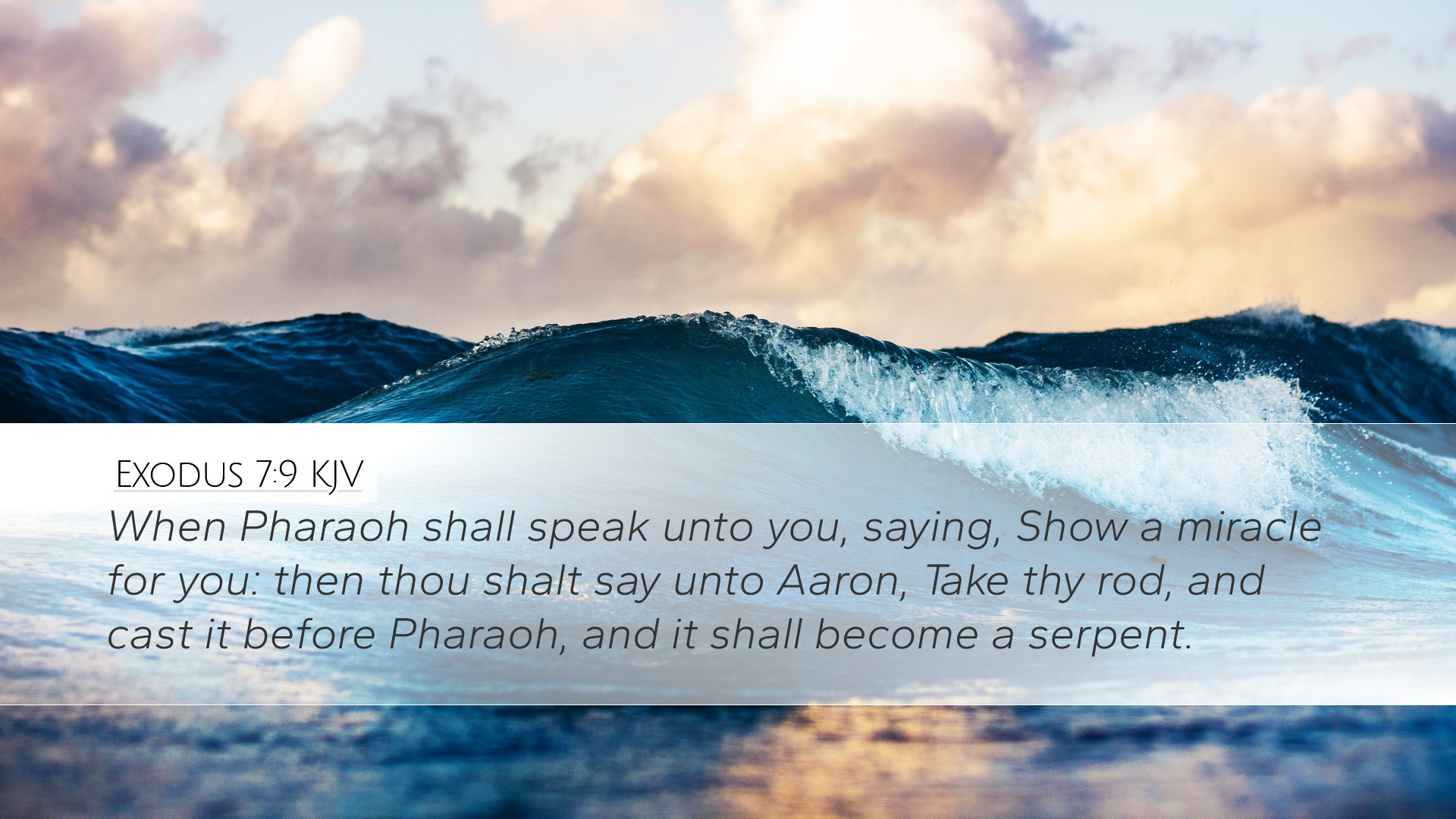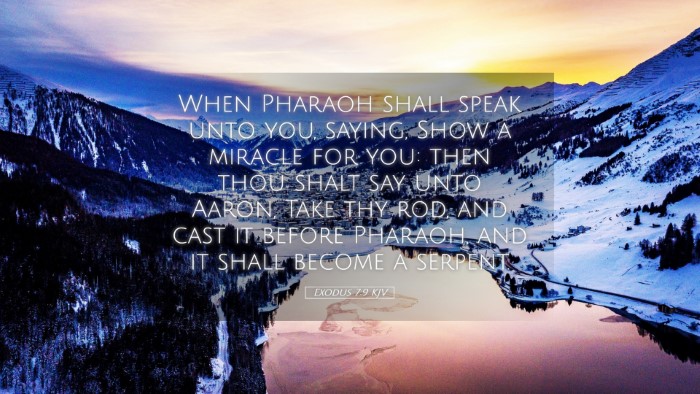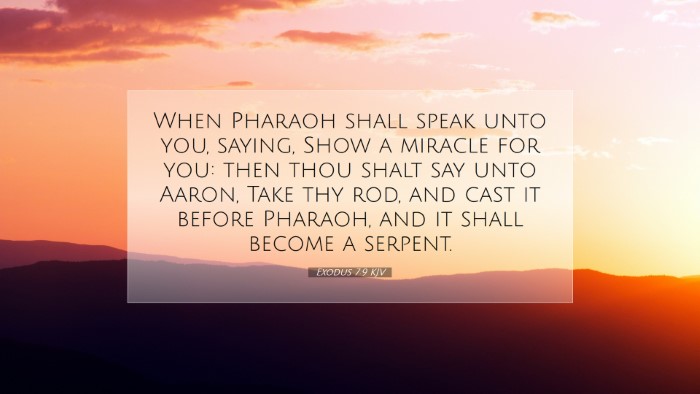Exodus 7:9 Commentary
Verse: "When Pharaoh shall speak unto you, saying, Show a miracle for you: then thou shalt say unto Aaron, Take thy rod, and cast it before Pharaoh, and it shall become a serpent."
Introduction
The events in Exodus 7:9 mark a significant point in the narrative of Moses and Aaron's mission to lead the Israelites out of Egypt. This verse highlights the expected confrontation with Pharaoh and the divine signs that are to accompany their message. A deep analysis of this verse from various public domain commentaries reveals profound theological insights and practical applications.
Historical Context
Understanding the historical context of Exodus is crucial for interpreting Exodus 7:9. At this juncture, the Israelites were enslaved in Egypt, and God had chosen Moses and Aaron to demand their release. The Lord preemptively instructs Moses on how to respond when Pharaoh demands a sign. This narrative frames the larger drama of God's sovereignty and the struggle against oppression.
Theological Insights
- The Role of Signs and Wonders: As Matthew Henry notes, signs were crucial in validating the authority of God's messengers. In ancient Near Eastern culture, wonders performed by a prophet or magician were often a basis for establishing credibility.
- Divine Authority: Albert Barnes emphasizes that the miraculous signs serve to show that the authority of Moses and Aaron is not from themselves but from God. These acts are symbols of God's power over natural elements and, by extension, over all deities worshiped in Egypt.
- Symbolism of the Serpent: Adam Clarke offers insight into the symbolism of the serpent. In Egyptian culture, serpents were often associated with royalty and divine protection. The transformation of Aaron's rod into a serpent directly challenged Egyptian beliefs about power and authority.
Practical Applications
The message delivered in Exodus 7:9 resonates beyond its immediate historical setting, providing rich applications for contemporary readers:
- Faith in Divine Power: Just as Aaron was commanded to demonstrate God’s power, believers today are called to exhibit faith in God’s authority in their lives. This verse reminds us that God equips His servants to confront the challenges they face with miraculous interventions.
- Preparation for Confrontation: Moses’ instructions to Aaron reflect the need for preparation in spiritual endeavors. Leaders must be ready to demonstrate their faith amidst opposition, illustrating the importance of prayer, study, and reliance on God’s guidance.
- Confronting Challenges: Just as Pharaoh represented a formidable opposition, we can encounter modern equivalents—systems of thought, secular ideologies, or personal struggles that challenge our faith. The pre-emptive strategy of God through signs encourages believers to approach these challenges with confidence and intention.
Exegesis of Key Phrases
Each component of this verse merits consideration to grasp its full import:
- "When Pharaoh shall speak unto you": This phrase reveals the anticipated encounter between God’s messengers and the king, emphasizing the divine ordination of events.
- "Show a miracle for you": The request for miracles underlines the expectation of divine intervention and validation, indicating that God’s actions serve as a witness to His authority and power.
- "Take thy rod": The rod symbolizes authority and the presence of God. It is not merely a physical object but a representation of Moses’ and Aaron’s divine mandate.
- "It shall become a serpent": This transformation entails more than a mere magic trick; it illustrates God’s capacity to alter the natural order, asserting His supremacy over creation.
Conclusion
Exodus 7:9 presents a multifaceted exploration of divine authority, the role of signs, and the call to faith amidst adversity. The commentaries of Matthew Henry, Albert Barnes, and Adam Clarke provide layers of understanding for pastors, theologians, and students alike. As readers reflect on this scriptural passage, they are encouraged to consider how God prepares and empowers His people in their own spiritual journeys.


